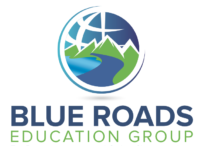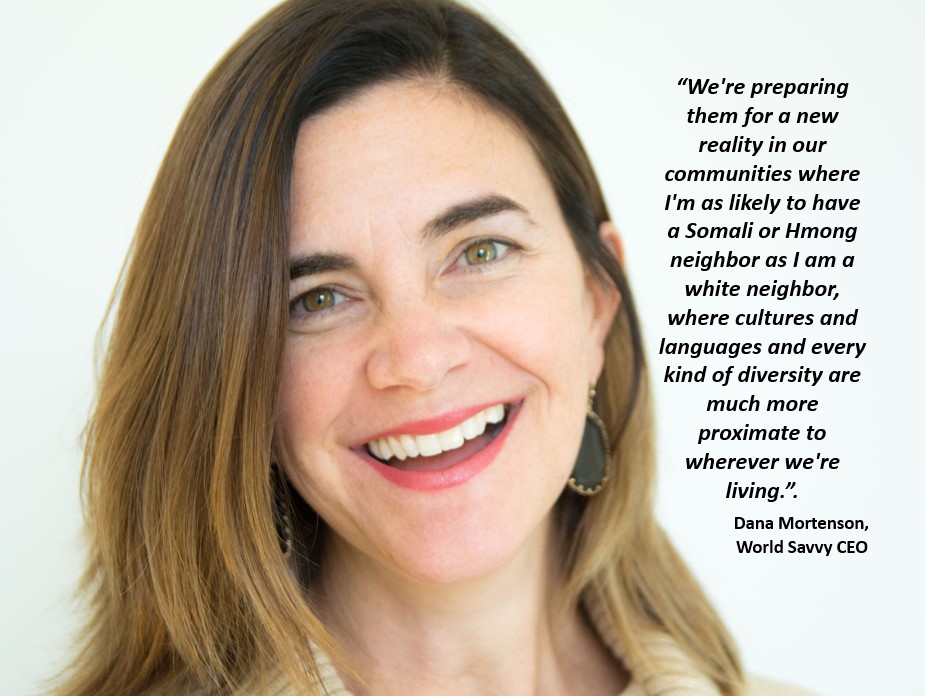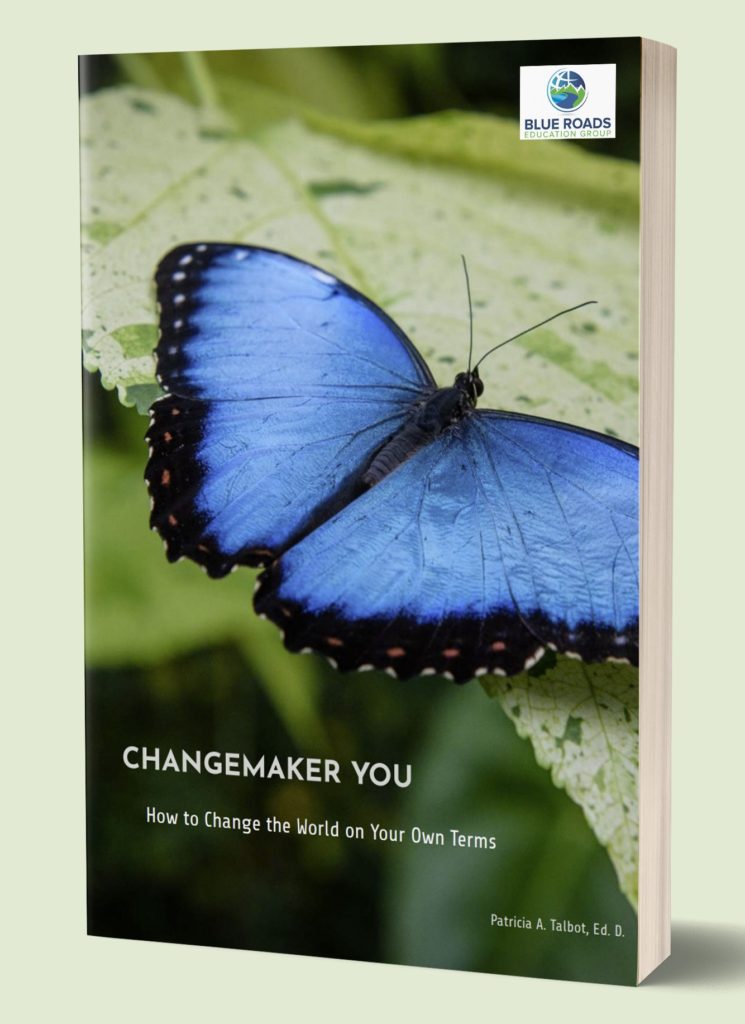In Part 1, Dana shared her upbringing and learning experiences that led to the founding of World Savvy as well as how that work unfolded from the early days to include a broad range of work with people across cultures.
In this second part of the conversation, Dana updates us on World Savvy’s growing influence and includes a reflection of her hopes for education as the world recovers from the Covid-19 pandemic in full swing at the time of this conversation.
From World Savvy’s beginnings in 2002 as a direct response to 9/11, the goal was to work deeply with students and teachers to find out what was needed to bring global competency work into schools with all of the challenges and complexities at play. A lot of their early work was about listening and “generating demand”.
By saying to anyone and everyone who would listen, “The world is changing. The way that we're teaching young people isn't preparing them for one job, a 40 year career at an automobile plant anymore… We're preparing them for a new reality in the workforce.”
If you're teaching in a classroom, you are much, much more likely to have this rich and wonderful expanse of diversity in terms of linguistic and cultural and ethnic diversity.
The work wasn’t about developing more content or curricula. There was plenty of that. What was absent was an “implementation gap” where educators were “confined in this old system. You might go to a wonderful human rights conference and come back with three week units and have zero capability to figure out how to make time for that.”
The expectation was unrealistic. What was needed was a way to think differently. How can this work become a “baked in part of pedagogy? Maybe it's less about fitting in more content and more about the approach to teaching and learning.”
This thinking led World Savvy toward their current “case study pedagogy, inquiry based methodology and project based learning” approaches.
With these approaches, they were committed to helping teachers “dislodge this notion that they had to be an expert. “
I have a degree in international affairs… It taught me to think in a certain way, but you could read enough this week to be more up to speed on a lot of the issues that I studied now 20 years ago. It's not to say I don't value that degree, but it's to say that I don't think any of us – with a world that's changing this rapidly and is this complex and interdependent – can be expected to have subject matter expertise across every arena. So the job of an educator becomes… how do you facilitate learning in this changing world in this complex phase where there's so much to know?
The half life of knowledge is shrinking every second and now kids can get more knowledge on the internet. How can I possibly be expected to know (everything)? And the answer is you can’t!
They kept asking.
What does it look like to build a practice that centers this?
As an institution, World Savvy has made great progress in helping educators feel confident in their answers to that question.
Five years into the work they began to feel ready to think about expansion by building partnerships. By reaching out and looking for like-minded educators interested in this way of thinking and working, they discovered there were others with “the same philosophically aligned ideas.”
Dana celebrates being brave enough to “swim in the deep end” and take advantage of opportunities that have come her way to work with other changemakers and thinkers who challenge her and make sure she's pushing herself to be as “innovative and creative ” as she can be about the work. By its very nature, global competence work challenges our ability to be comfortable with change and ambiguity. She has found the need to constantly be asking how to be adaptive as an organization while helping schools to do the same.
Dana was concerned early on that the global education space was “elitist” and inaccessible to those who need it most. Where “coastal cities and better resourced districts” were well represented at conferences she would attend, they “didn’t get a lot of Oklahoma or Nebraska or rural Minnesota in those conversations.” Some seemed to think that it was only “wonky policy folks” who needed to think about global issues, but Dana pressed on.
My deep belief was always ‘No. Every single person needs to know these things.’
When asked about World Savvy’s expanding spheres of influence, she reframes it in terms of “expanding spheres of learning.”
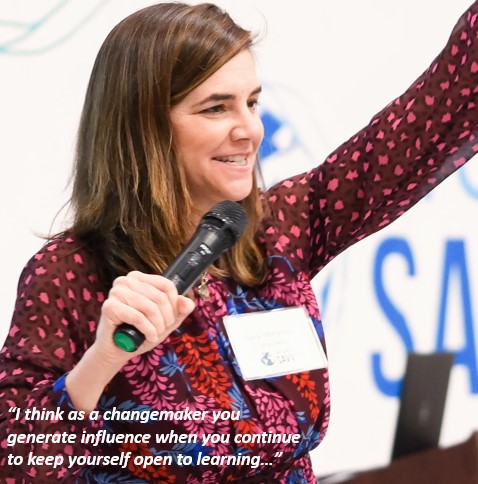
…not only more about what you're already doing, but how other people are contributing to that tapestry of innovation and how their thinking can influence and change what you're doing.
One of these expanding realms of learning came to her through her work with Ashoka. She became an Ashoka Fellow in 2011. By leaning into the opportunity as both a learner and a contributor, she gained access to others walking the changemaker walk with great intention. She has engaged with Ashoka’s Changemaker Schools Network along with other powerful coalitions of thinkers.
The key takeaway for Dana is that expanding influence is based on expanding relationships.
It comes down to thinking about how to have these conversations over and over and figure out how they connect to compliment and also bolster other things that people care about. If you care about workforce readiness, our movement to change the way education (works) s going to help you.
She steers the conversation to talk about how changing education will help meet the priorities of a community in a language they relate to.
I've learned not to be precious about the language of (the) movement. Because there are places in the country for whom “global competence” is just not ringing a lot of bells. That's okay because it's relevant learning and workforce readiness… Or it's social, emotional health and wellbeing and inclusion. Or it's about equity, about creating a framework where every student's identity and every student's opportunity to access the agency that's within them .
That’s been an important lesson as World Savvy has expanded it’s influence, It doesn’t matter what you call it.
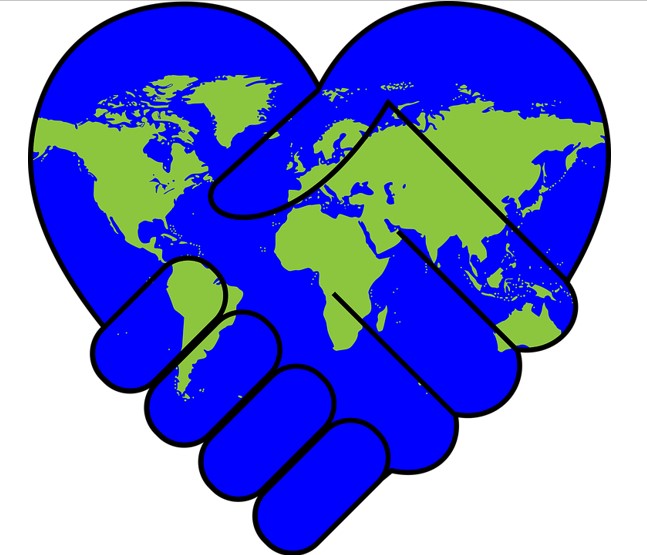
“Getting people on board is much more of a heart centered thing. It has to resonate. (We have to) meet people where they are.”
With this approach, World Savvy has hit some exciting milestones. They’ve engaged more than three quarters of a million students since their inception, worked with more than 1100 schools and over 6000 educators across 29 states. That's impressive!
At this point, they are looking forward to “consolidating this model to really look at whole-school change and how to bring all the different things that we've done to bear inside a school as the unit of change and figure out what it looks like to get to a sustaining place where school is always integrating this in terms of teaching, learning and culture.”
It’s been a journey driven by a mission, but fueled by learning and relationships. By learning to be “adaptive in this space”, they are gaining headway with “a bunch of schools across the U.S. That’s pretty exciting work.”
CHANGEMAKING DURING AND AFTER A PANDEMIC
As our conversation turned to the Covid-19 situation surrounding us at the time we talked, Dana began to reflect on the relevance of the worldwide pandemic to World Savvy’s work in schools.
If there is a better example of how interdependent and interconnected we are… I don't know that I can find one right now…
It’s a worldwide case study that proves the necessity of timely attention to World Savvy’s priorities. Like everyone, they’ve had to “pivot” a bit in terms of how they work, but they talk a lot about “making pandemic lemonade out of the lemons we've all been handed.” Like others, they’ve been working to bring many of their offerings into the online space. With a focus on preparing young people to navigate challenges that affect them, they are in the perfect position to model this with instructional coaching, professional development and student engagement through design challenges offered virtually.
The situation has forced all of us to “flex our muscles” in the online environment. Those who were hesitant before can resist no longer.
I'm a believer that there's some things you can facilitate in an online environment and things that you can't and I think that we're going to see at least come movement towards making sure that people have the capacity to be thinking about that and right now (in) most teacher ed programs, you're not required to have that (online teaching) as a skillset when you're coming in the classroom. I think that will change…We are interconnected and interdependent with the world and this will not be the last time that we face something.
“I've never lived through anything where the entire world is experiencing something with the same velocity on the one hand but also urgency.”

“That's highly unusual and again demonstrates better than anything I can how globally interconnected we are.”
Despite the tragic circumstances for so many that must not be minimized, one positive that could come out of this is a renewed opportunity for our classrooms to become more student-centered where students have opportunities to “explore things they care about and things they want to do in their communities.”
We don’t know what the “new normal” will be. Dana considers the possibility that there could be “waves of social distancing before a vaccine” that requires ongoing adjustments to how we do school. She reminds us though that “We are wired as human beings to learn and the over-facilitation of that and the over-structuring of it over time has probably crushed some of that creativity. So there is a reality in which it's an opening to say, ‘What can kids do when it isn't a teacher-centered environment? “
As the mom of a first grader and a second grader at home right now, she says “ I kind of have two little experiments living in my house… We tried for a week of doing things that were more regimented and then said, ‘What do you really want to learn how to do? What are you wondering about? What problem would you solve?’”
She’s hopeful that teachers are asking these kinds of questions as well. Like others writing on the topic currently, Dana’s asking questions like, “What did we take away? What did we roll back and if we could roll them back because we had to, did they really need to be there in the first place?”
Is this the opportunity we’ve needed to question standardized testing as a way of being? Some countries that don’t rely on them are doing quite well without them. Take as examples Finland who is has been reported to have the #1 education system in the world or Singapore who has changed their approach after realizing the toll high stakes assessments were having on the mental health of the society.
Dana's hope is that we come back with “a renewed sense of urgency around where we are creating more barriers to learning than we were solving for by generating some of the structures that we had in place and how can we do that differently.”
Instead of organizing the school calendar toward content for a test, Dana asks “Is there a way to really reshape and rethink it around student centered learning, rooted in passion that's rooted in deep learning, that's rooted in really building skills for independent movement in thinking?”
She thinks we will be figuring out how to do these things in a “blended space”. Given the opportunity, she has great faith that “young people will find ways to build the skills that they want and need if the learning environment is set up to be conducive to it , and if it's valued.”
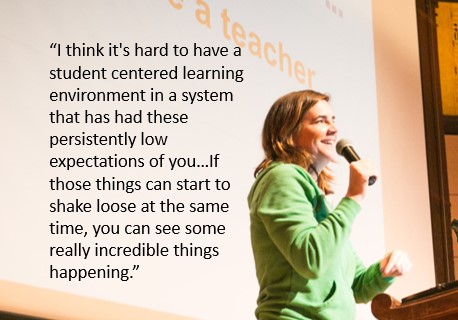
Dana hopes for societal changes, too. While she thinks we are “pretty decent” at dealing with localized disasters, we don’t have a good track record when it comes to “grappling with really big complex ideas that don’t feel like they’re on your doorstep.”
Climate change feels too elusive and far away and so would a pandemic.
But it isn’t as if we have not been warned. Experts have been trying to gain our attention for years on both subjects. But, she says, “As humans we have a really hard time attaching ourselves to these things that seem more abstract and complex…” Her hope is that we can come out of this having learned some critical lessons about global issues and how we should begin to do things differently.
Maybe there should be ways in which we adapt our workforce or our way of thinking about school so that we aren't treading so heavily on the earth or…ways of interacting with one another (that) are interdependent in a different way that doesn't have such an impact.
I'm optimistic that some of that will carry through…At the community level, if you can let thousands of people out of jail because they weren't a danger to themselves or others, why were they there in the first place? Can we collectively look at data about some of the things we've done in society in the name of making us safer or more prosperous ? If you look at it against the data that we know is there, it's actually made our society more inequitable in some measures, less safe and hasn't really accomplished that goal. Can we come out of it not being willing to accept those things as the default setting for what we need?
That would be pretty amazing, I think, to be able to do that.
I‘m hopeful that some of it at least gets retained.
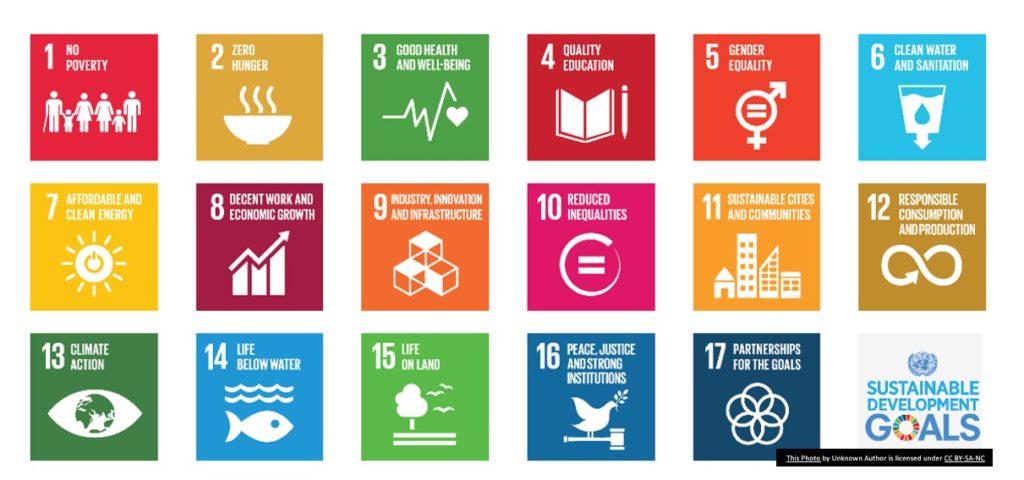
I'm hopeful, too, Dana, especially with World Savvy creating so many powerful opportunities for educators to learn how to engage students directly in meaningful work directly impacting their lives.
I can’t find a Global Goal in the list that Dana’s work throgh World Savvy isn’t addressing. Can you? Only by focusing on #4 Quality Education with an emphasis on student driven “real work for the real world” in which we all live can we hope to realize all seventeen Sustainable Development Goals within the next ten years.
Let’s get busy! Get in touch at the link below and let us know how you are working to reach the Global Goals from where you are.
Podcast: Play in new window | Download
Subscribe: Spotify | iHeartRadio | Email | TuneIn | Deezer | RSS | More
